In the 2023–2024 school year, the Elizabeth School District (ESD) Board of Education in Colorado decided to review the district’s instructional materials. Based on community feedback, they removed 18 titles from school libraries that contained age-inappropriate content, including suicidal ideations, sexually explicit content, and content about perpetrating a school shooting. Then, the American Civil Liberties Union (ACLU) sued them for following the community’s wishes.
Without even a hearing, District Judge Charlotte N. Sweeney ordered the district to repurchase and reshelve the titles in question. Now, this school system of 2,600 students faces a battle against the ACLU as they appeal their case to the U.S. Court of Appeals for the Tenth Circuit.
“The ACLU sits on a $365 million war chest that it wields with exacting precision and might,” Julian R. Ellis, Jr., a lawyer representing ESD, told IW Features. “And I have no doubt that their intention in bringing this case was to make an example out of a small, rural school.”
The lawsuit, brought at the end of 2024 by the ACLU’s Colorado chapter on behalf of two children, the NAACP Colorado–Montana–Wyoming State Area Conferences, and the Authors Guild, claims that ESD is violating the First Amendment. Ellis, however, argues that the government is not mandated to provide particular books as a benefit to anyone.
The books themselves were discovered during a curriculum review that was prompted by concerned parents, according to ESD Superintendent Dan Snowberger.
“We put together a curriculum review committee that consisted of parents, consisted of community members, of teachers, of a board member, and also a student who was invited to participate,” ESD School Board President Rhonda Olsen told IW Features. “In that process, they came across 19 books that kind of alarmed them based upon the content, and they brought those books to the board with their concerns.”
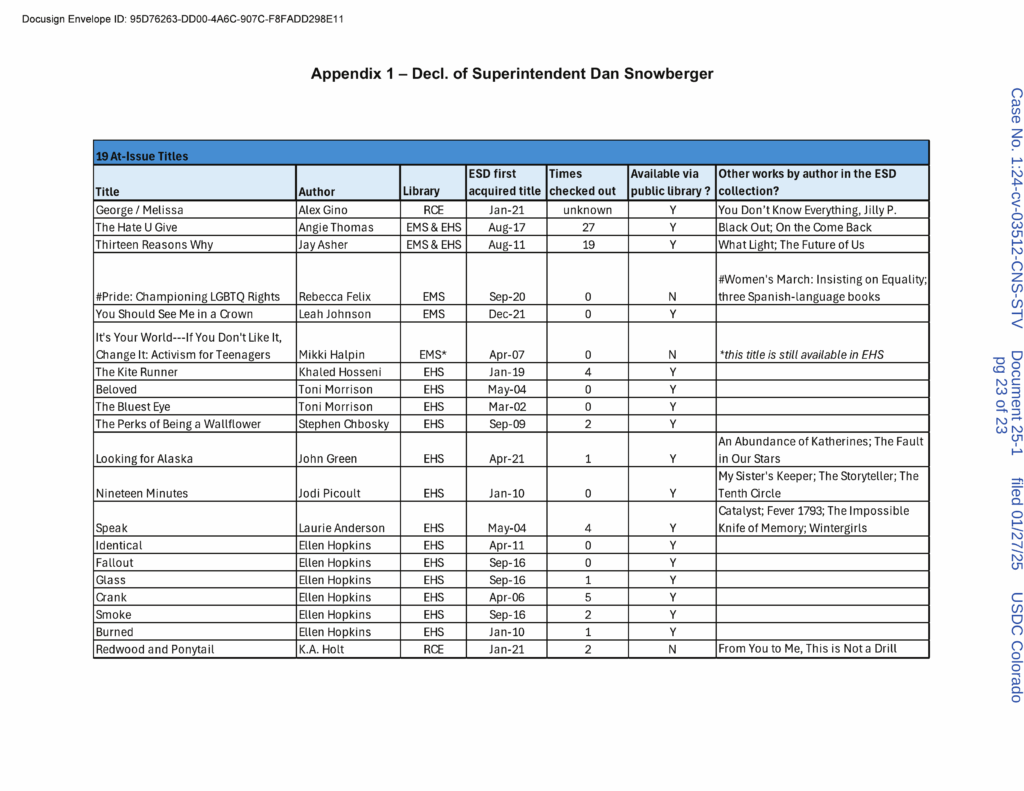
The district then made those 19 books publicly available for community members to review and respond via a form, according to Olsen and Snowberger. The overwhelming feedback, Snowberger said, was that the books lacked academic or historical value and contained age-inappropriate graphic and explicit content.
“The superintendent tried to send these materials to outside of the district, say, to our attorneys,” Olsen said. “It wouldn’t make it through the [school’s] internet filter, which we’re required to have by law.”
Signed legal declarations provided to IW Features by Ellis show excerpts from these titles, which were also read aloud at a school board meeting.
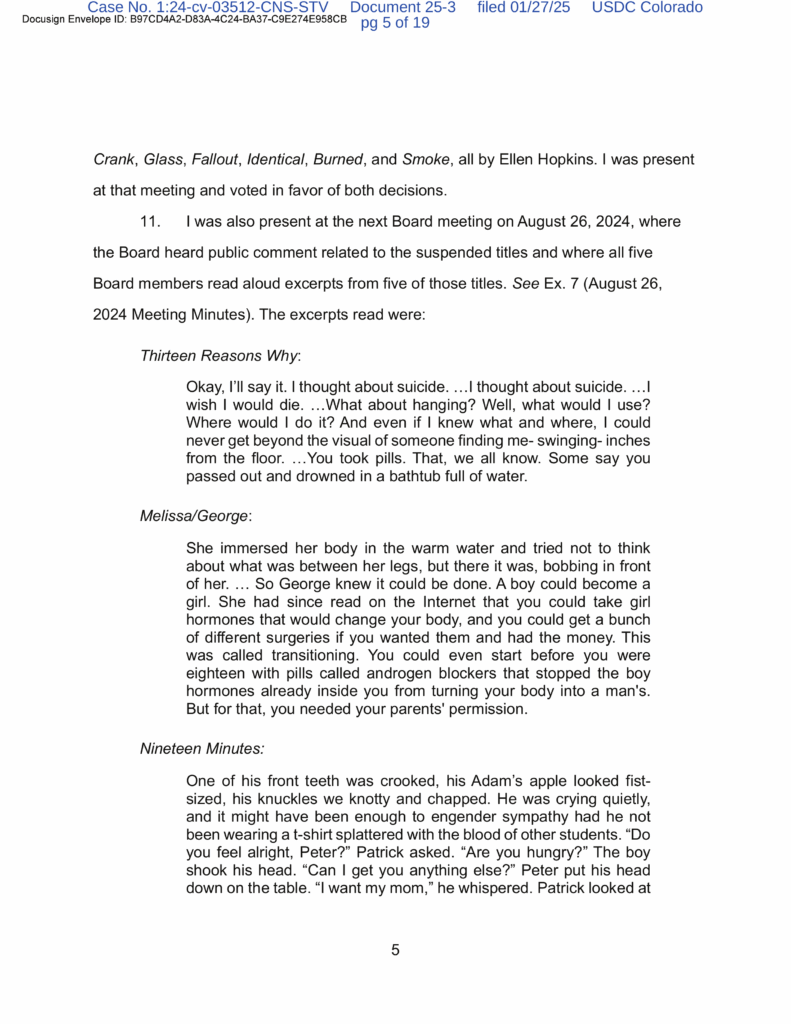
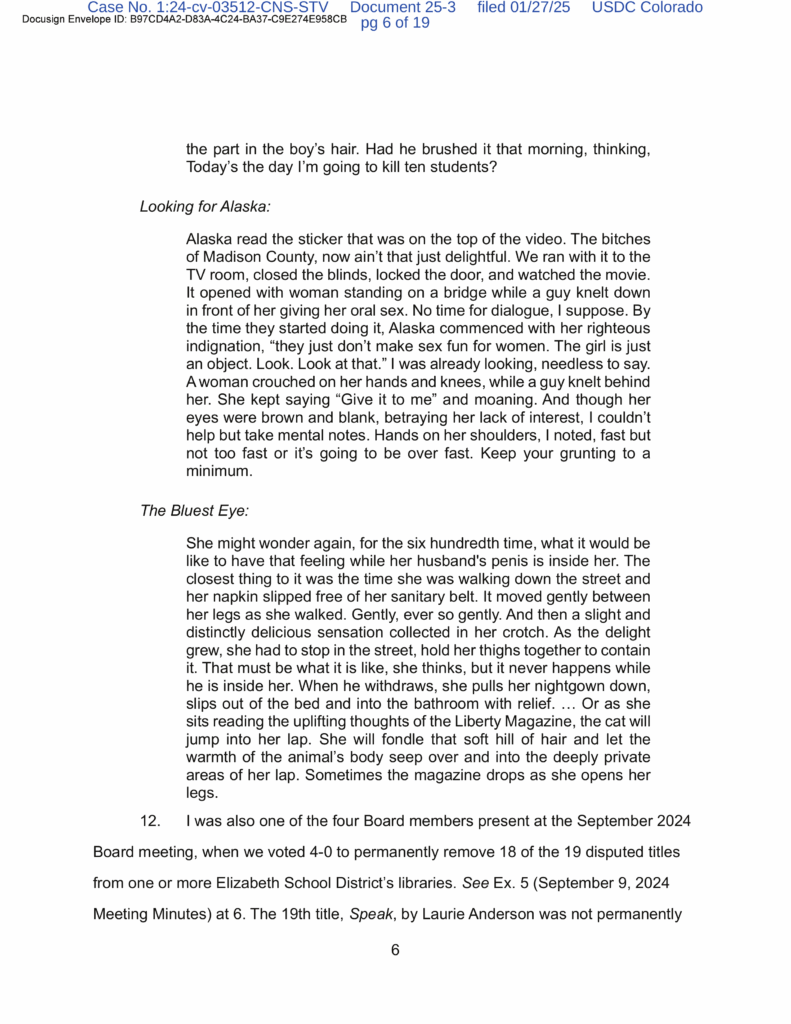
Based on the community’s feedback, the ESD school board made the decision to remove 18 titles from the school libraries, and one book, which was considered inappropriate for the district’s middle school, was removed from the middle-grade library but remains in the district’s high school.
“Everybody’s got a different opinion on what’s right or what’s wrong, but you have to listen to your constituents and the people that put you in those seats [and] listen to the parents and what their concerns are,” Olsen said.
Despite the ACLU’s accusation that the board is forcing “its own brand of conservative politics in ESD schools,” Snowberger said that books with sensitive content that contain historical or educational value are still available at ESD’s libraries for students to check out at their parents’ discretion. This “sensitive content” designation was based on seven categories, according to legal declarations:
- Graphic violence
- Profanity/obscenity
- Ideations of self-harm or mental illness
- Religious viewpoints
- Sexual content
- Racism/discrimination
- Drug or excessive alcohol use
As part of its goal for increased transparency, the district let parents opt their children out of titles on the sensitive materials list, gave parents access to the district’s online library catalog, and gave parents access to their children’s school library accounts, according to legal declarations. Furthermore, when a child checked out a book on the sensitive topics list, the parents received an automated notification.
Contrary to the ACLU lawsuit’s claims, Ellis emphasized that the district’s rationale was not limited to books that politically or culturally conservative individuals may object to; even the Bible is included on the sensitive topics list, as are other religious texts.
“If Johnny checks out the book, the Bible, and his parents are atheists, they get an email,” Ellis explained. “[They might say,] ‘Johnny, I see you checked out the Bible, you know, let’s talk about that.’ It’s just an opportunity for them to talk.”
The ACLU also accused the ESD school board of “removing books that discuss LGBTQ+ and race-related topics,” but in a signed legal declaration, Snowberger noted that ESD libraries still contain books that “explicitly portray LGBTQ characters, provide LGBTQ personal narratives/testimonials, and include content related to LGBTQ history and identities” and books that “address issues related to racism, provide historical accounts, and provide diverse perspectives on the African American perspective in America.”
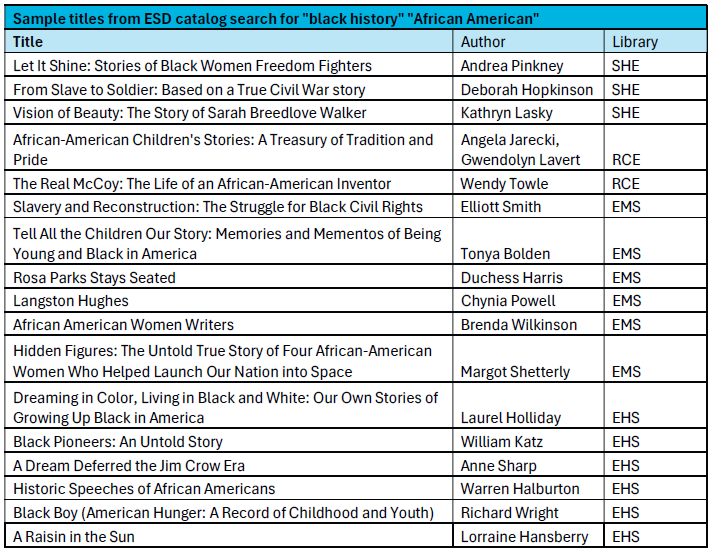
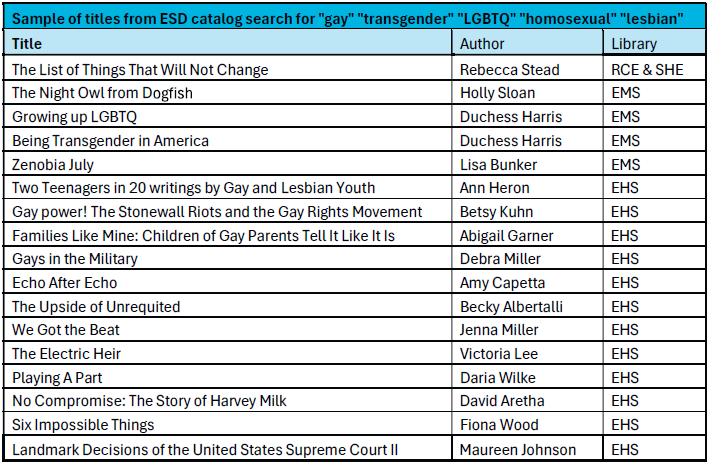
“We’re not banning any book,” Snowberger said. “We just don’t believe they belong in a collection where a child can walk up to a shelf and take it off the shelf without having a parent engaged in that decision-making.”
Indeed, Snowberger told IW Features that the district’s policy ensures that students are free to bring any book from home or the public library for silent reading time.
“If the parent decides that their particular child has the maturity to be able to handle certain books like this, they’re free to purchase those books, to check them out at other libraries,” Ellis said. “We live in a day and age where books have never been more readily available, whether it be through Amazon, online libraries, even just the internet.”
The district also emphasized that these books were not intentionally placed in the school libraries in the first place. ESD’s librarians are paraprofessionals, not professional librarians, and rely on grant funding and a limited budget, Ellis said. He explained that book publishers often offer steep discounts on pre-made packages of hundreds of books. In turn, cash-strapped districts like Elizabeth purchase the collection, which may have a couple of inappropriate books unbeknownst to the paraprofessional librarians who trust the publishers.
Given the limited resources of smaller districts like Elizabeth, he elaborated, cycling books out of the school collection is a common practice to make the most efficient use of limited shelf space and funding.
Additionally, Ellis, Olsen, and Snowberger all emphasized that Colorado’s state constitution empowers local communities to make decisions regarding instructional materials in schools. With its appeal, ESD hopes the judges recognize the rights of district parents and community members who helped the school board make its decision.
“We have a saying, ‘Children come to school with the values instilled in them at home, and they go home with those values,’” Snowberger told IW Features. “It’s not our job to do anything that would change their values while at school.”
A recent Fifth Circuit ruling in a similar case, Little v. Llano County, affirmed libraries’ rights to curate their collections, and though the Elizabeth School District is small, if the Tenth Circuit rules against them, their case is likely to end up at the U.S. Supreme Court, according to Ellis.
“It is truly of national importance,” Ellis said. “Anyone who cares about parental rights—anyone who cares about education issues—should be watching this case.”











